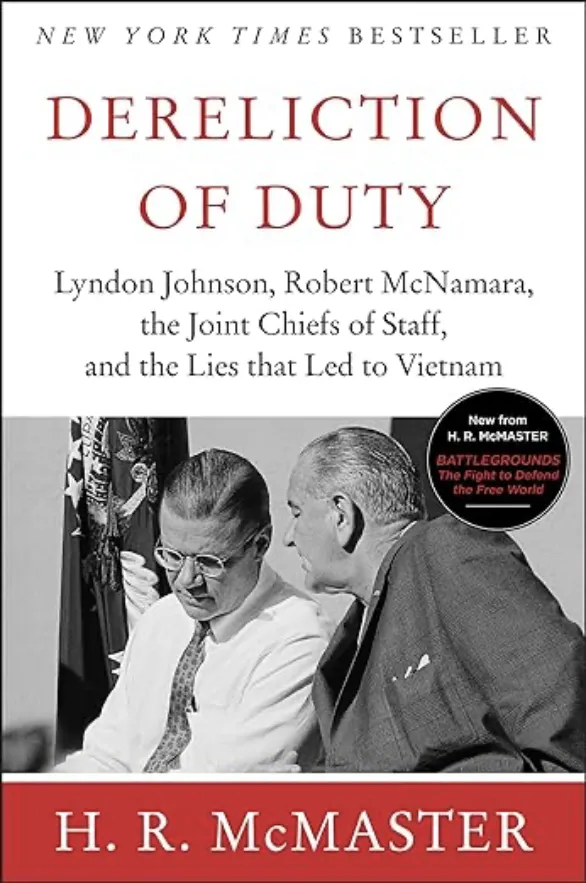Dereliction Of Duty
by H. R. McMaster
This interesting but unlikable book on the decision to go to war in Vietnam was written by a US Army major in 1997. Later, the author disgraced himself by serving as Trump’s National Security Advisor; it is, alas, not hard to see the path McMaster had already paved, two decades before.
McMaster is at pains to show that the Joint Chiefs of Staff were sidelined in the course of this decision, and deeply critical of their willingness to accept being sidelined. Throughout the critical year, the Joint Chiefs were deeply divided by bureaucratic infighting and by inter-service competition. Oddly, though McMaster observes that JFK (and Defense Secretary Robert S. McNamara) did not, as a rule, have great respect for military expertise, he makes no effort at all to explore why they felt as they did. Kennedy and McNamara were smart, and liked to be seen as smart. They’d each had spectacular careers in World War II. A lot of contemporary literature — The Caine Mutiny, Catch-22, even The Naked and the Dead — explores reasons for this mistrust. It’s not a secret or an aberration.
Though the Joint Chiefs want to be consulted, their deliberations seldom or never considered Vietnam or the Vietnamese in any detail. McMaster’s failure to notice that is significant.
McMaster, in castigating LBJ for placing his domestic agenda ahead of winning the war, repeats the dereliction of which he indicts the Joint Chiefs. South Vietnam was doomed in 1963; it is seldom mourned. The Johnson agenda which McMaster would have sacrificed to prop it up included civil rights, voting rights, and Medicare: changes that transformed and improved the nation, even if they didn’t help Army beat Navy.
Is there a reasonable biography of Curtis LeMay? Email me.
